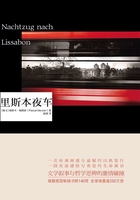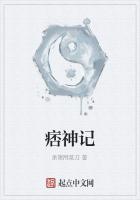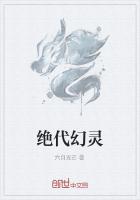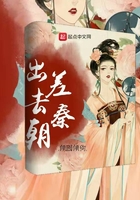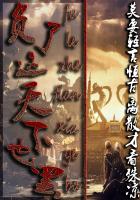One time when traveling between places where he was working Yu passed by his own house. His wife had given birth to a son a few days before but Yu, even though he heard the cry of a baby didn’t enter his own house because he was afraid of losing valuable time in his battle against the destructive flood waters. When he passed by his own house a second time, he heard his son in his wife’s arms calling out her name, but again he did not enter. The construction project was at a critical moment at that time and there was not a moment to lose. When he passed by his own house for the third time, his son was over ten years old and ran out and did everything he could to physically pull his father into the house. Touching his son’s head with deep emotion, Yu told him that he was still too busy with the water-control work and once again this big-hearted man left without entering his own home. The tale of how “Yu three times passed his own door without going in” has been admired by generations of Chinese people as an example of selfless diligence and devotion right down to the present day...
As he sought to control the floodwaters of the Yellow River, Yu had three treasures, which were invaluable to him: namely a map of the Yellow River, a mountain-cutting axe and a water-proof sword, without which, it would have been impossible for Yu the Great to successfully accomplish his mission. It is said that the map of the Yellow River was presented to Yu by the God of the Yellow River He Bo. There is an interesting story concerning this.
Before Yu was born, there was a person called Feng Yi living in Tongxiang Village, Huayin. The life of an ordinary farmer did not appeal to him very much. Instead he dreamt of becoming a celestial being. He heard a story that if one drank the juice of the daffodil for one hundred days, one could become a celestial being. Immediately he began to search everywhere for a good store of daffodils, often crossing the Yellow River in his foraging trips. Ninety nine days passed and he only needed to find one more daffodil and drank its juice, and all his dreams could be fulfilled. He crossed the Yellow River and came to a small village looking for that all-important last daffodil. The water there was not deep and Feng Yi waded in the river. When he reached the middle of the river, the river suddenly got very deep. Feng Yi grew flustered and lost his footing and was swallowed up by the Yellow River and was drowned.
After he died, he brought with him a great hatred of the Yellow River. He went to the God of Heaven to make his case against the Yellow River. Hearing that Yellow River was out of control surging wildly in great floods and harming the interests of the people, the God of Heaven was also very angry. Knowing Feng Yi had drunk the juice of daffodil for 99 days and was on the very threshold of becoming a celestial being, he asked Feng whether he would like to act as the God of the Yellow River to become its father and exert some control over it. Overjoyed, Feng Yi agreed. For one thing, he would fulfill his wish of being a celestial being and for another, he could revenge himself on the Yellow River.
After Feng Yi became the God of the Yellow River, he was called He Bo. However, since he had no experience of water-control work, he had no idea about how to tackle his sacred mission. He was very anxious and went to ask the God of Heaven for advice. The God of Heaven told him that to control the Yellow River, he should first study the river and draw a map of it, which would be invaluable to him in his efforts to control the river.
It was pure drudgery surveying the river and drawing the map. When it was finished, he was old and weak. In the map were clearly marked the deep and shallow places, the places where the bank was easily breached by the river, the points where the water courses should be dug or blocked, the points where the river would dry up and where the water of the river could be drained. Unfortunately after this monumental task He Bo had no strength left to actually take steps to control the Yellow River. He was saddened but comforted himself with the belief that one day someone would come along to implement the designs on the map. Hence, He Bo spent his remaining years at the bottom of the Yellow River and never showed himself.
Years later, He Bo. heard that Yu had been given the task of harnessing the Yellow River, and he decided to present the map to him. One day he heard Yu approaching the riverside with his mountain-cutting axe and water-proof sword, He Bo came out from the bottom of the Yellow River with his map of the Yellow River to look for Yu. He saw a person in a large bamboo hat on the opposite bank; it was Yu. Yu was aware that He Bo had drawn a map of the Yellow River and had always hoped to find him and consult with him. Yu said to He Bo, “Celestial being He Bo, I am Yu. I have come especially to ask you for your thoughts on how to control the floodwaters of the Yellow River.” He Bo said, “That’s great, I have been looking for you too. All of the work I have done and the designs I have put together are on this map. I give it to you.” Yu opened up the map the Yellow River which was densely marked with notes and additional illustrations. Yu was ecstatic. When he looked up to thank He Bo, the river god had already jumped back into the Yellow River.
Following the instructions on the map, Yu led the project as they worked day and night and finally dredged nine big tributary rivers and diverted the flood into the sea. People could once again safely plant crops on the land.
After his great achievements in harnessing the Yellow River, Yu was recommended to the position of special adviser to Shun. When Shun died 17 years later, Yu succeeded him as the chieftain of the tribal alliance. Later, Qi, the son of Yu the Great, founded the Xia Dynasty (2100 BC-1600 BC). To people of later generations this founder of the Xia Dynasty was also known as Xia Yu, in tribute to his renowned ancestor. Yu was buried on Maoshan Mountain. Since Yu had once gathered all the tribal leaders there to reward them for their deeds and accomplishments, people of later generations renamed this mountain Kuaiji Mountain. This is where the Mausoleum of Yu The Great once stood. The example set by Yu has been praised by countless generations of Chinese and his assiduous and single-minded spirit has been cherished by all. Hence, visitors to Shaoxing invariably pay a visit to the Mausoleum of Yu The Great.





